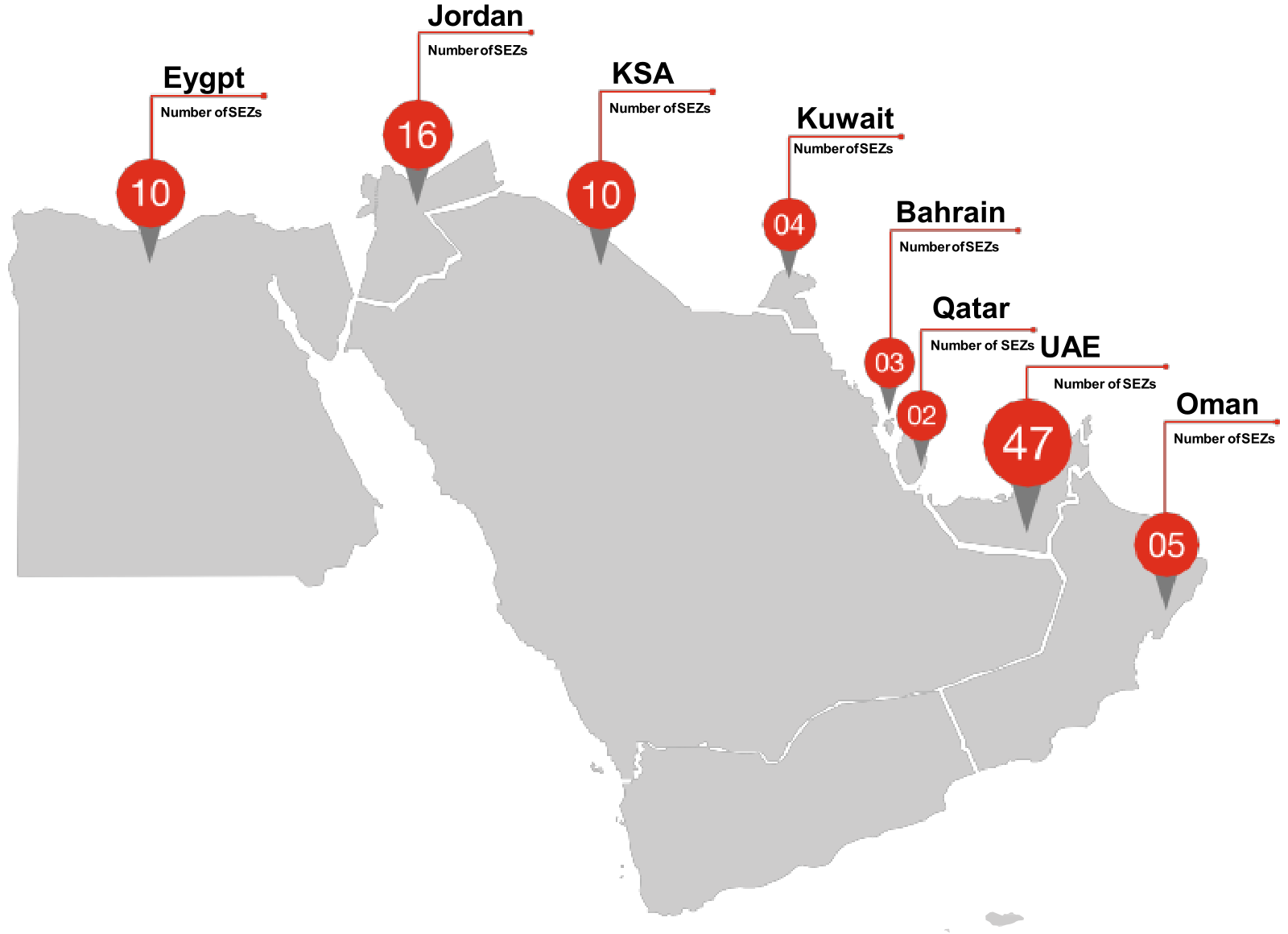The Middle East is witnessing a surge in the creation of special economic zones (SEZs) as countries in the region aim to diversify their economies and attract foreign investment. These zones, which offer a range of incentives to businesses, are seen as a crucial tool for promoting economic growth beyond the traditional reliance on oil and gas.
Saudi Arabia has been at the forefront of this trend, recently unveiling four new SEZs. These zones cater to specific sectors like advanced manufacturing, medical technology, and cloud computing, and provide benefits such as streamlined regulations, tax breaks, and simplified customs procedures. This initiative aligns with the country's Vision 2030 strategy, which seeks to reduce dependence on oil and establish Saudi Arabia as a global business hub.
The United Arab Emirates (UAE), a long-time player in the SEZ game, has been continuously developing new zones. Dubai, a leading emirate within the UAE, is home to successful examples like the Dubai International Financial Centre (DIFC) and the Dubai Media and Commodities Centre (DMCC). These zones have played a key role in establishing Dubai as a major financial and trade center.
The renewed focus on SEZs reflects a broader push in the Gulf Cooperation Council (GCC) countries towards economic diversification. Qatar's National Vision 2030 strategy mirrors this ambition, with SEZs identified as a key driver for attracting foreign investment and developing new industries. The region's vast reserves of land designated for SEZ development, estimated at around 40, 000 hectares, further underscores the commitment to this strategy.
While SEZs are not a new concept in the Middle East, their current iteration represents a significant shift. Earlier attempts focused on creating free trade zones primarily for export-oriented industries. The new generation of SEZs goes beyond this narrow focus, aiming to create ecosystems that foster innovation, knowledge transfer, and the development of high-value industries.
The success of these zones hinges on several factors. Creating an attractive business environment with efficient regulations, world-class infrastructure, and a skilled workforce is crucial. Additionally, ensuring transparency, robust legal frameworks, and adherence to international best practices will be essential to building trust with investors.
The Middle East's embrace of SEZs reflects a calculated strategy to achieve sustainable economic growth in a post-oil era. The potential benefits are significant, ranging from job creation and knowledge transfer to technological advancement and increased foreign investment. However, the long-term viability of these zones will depend on their ability to deliver on their promises and create a truly competitive and dynamic business environment.

